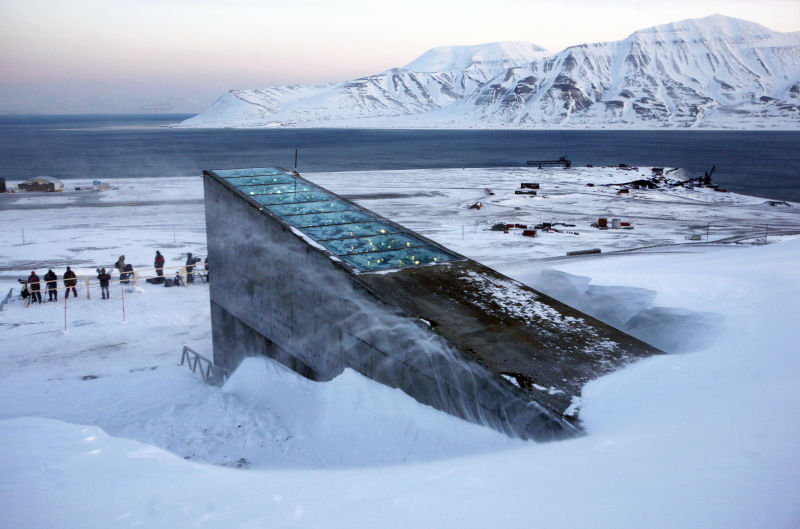Luigi Guarino, a scientist with the Global Crop Diversity Trust, which was set up to help secure seed collections around the world, says many of ICARDA's seeds were collected decades ago. Scientists would have a very hard time finding many of these varieties today. "It's material that in many cases is no longer grown in the field," he says.
Plant breeders treasure these seeds. Hidden in collections like these, they may find plants that can survive new diseases, or thrive in a changing climate. These seeds could be the building blocks for new varieties that farmers may need in the future.
For decades, ICARDA stored its seeds in a refrigerated room at its headquarters and shared them with other researchers in other countries. A few years ago, it sent a backup copy of the whole collection to the doomsday vault.
This was just in time, because ICARDA is based in Aleppo, Syria, which has been caught up in that country's ongoing violence. Most of ICARDA's scientists have left the country.
Guarino says the seed collection is still in Aleppo, but it's really hard to use it. "On occasion, staff from Aleppo do go there to retrieve seeds to fulfill requests, but that's just becoming too difficult now," he says.
So ICARDA has decided to rebuild its seed collection in Morocco. To do so, it's asking to retrieve part of its seed backup from that Arctic vault — officially called the Global Seed Vault. It's carved into the side of a frozen mountain in the Norwegian-controlled archipelago called Svalbard.
ICARDA could have reconstituted its collection from seeds that it had shared with other seed banks, but the backup copy at Svalbard had been generated more recently, and it was conveniently all in one place.
The keepers of the vault will haul out 130 boxes containing tens of thousands of small aluminum packets, each one filled with seeds.
ICARDA scientists in Morocco and Lebanon will grow new plants from those seeds harvesting duplicate copies.
Most will stay at ICARDA's new seed collection, available for sharing with plant breeders around the world. But one set will return to the vault in Svalbard — just in case there's another emergency.
Copyright 2015 NPR.
